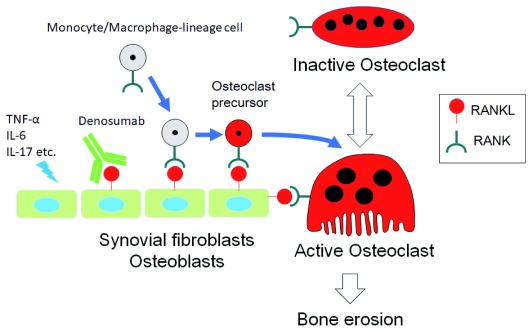Figure 3. Schematic representation of the mechanism for osteoclast development and denosumab action in rheumatoid arthritis.
Pro-inflammatory cytokines such as tumor necrosis factor-alpha (TNF-α), interleukin-6 (IL-6), and IL-17 directly or indirectly induce receptor activator of nuclear factor-kappa B ligand (RANKL) expression in synovial fibroblasts or osteoblasts or both. RANKL stimulates osteoclast differentiation from monocyte/macrophage-lineage precursor cells, leading to bone erosion in rheumatoid arthritis. Denosumab specifically binds to RANKL and suppresses osteoclast differentiation.

